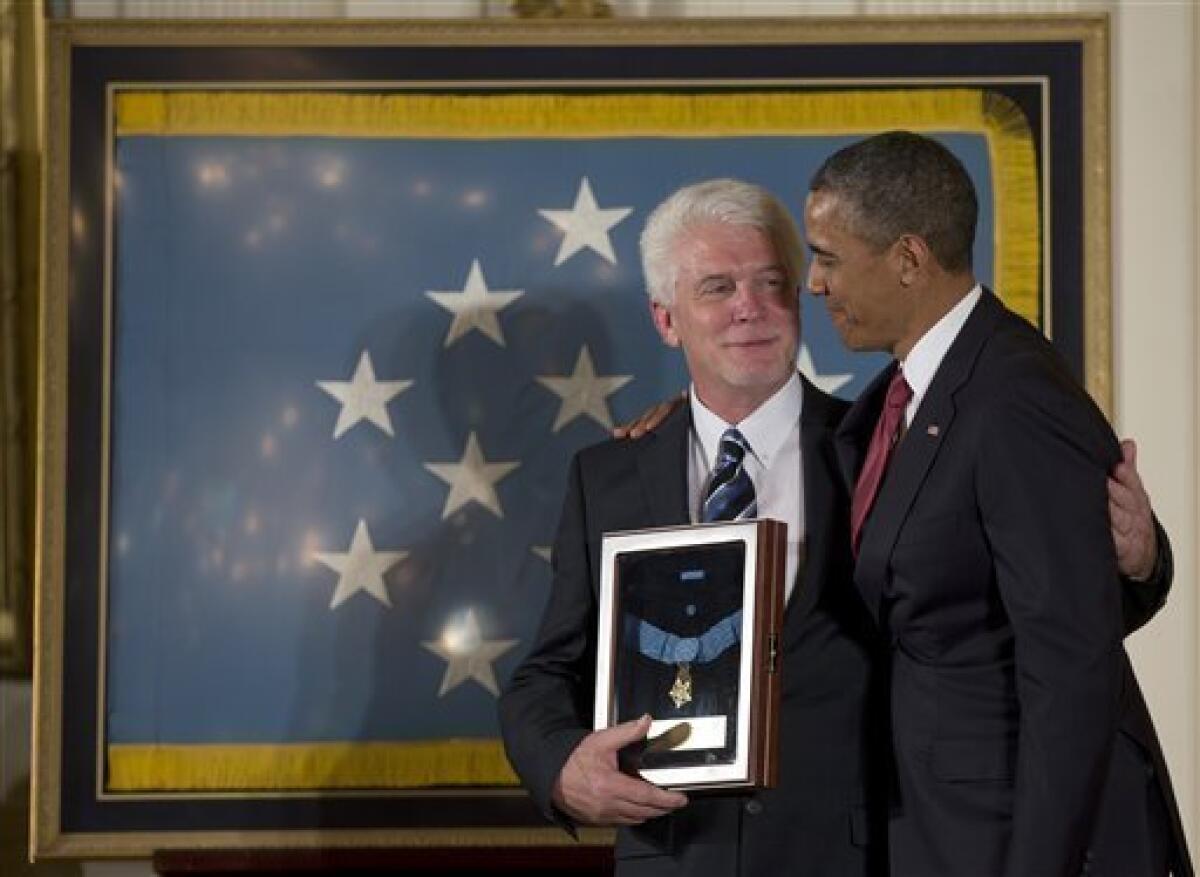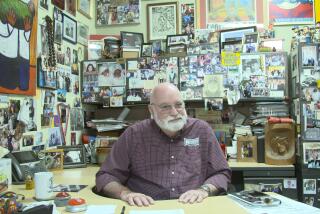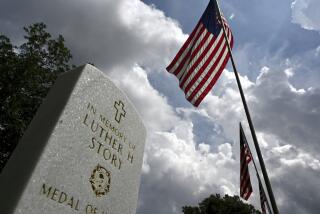Korean War-era chaplain receives Medal of Honor posthumously

- Share via
WASHINGTON -- President Obama awarded the Medal of Honor posthumously Thursday to former Army Chaplain Emil Kapaun, a Korean War officer who is better remembered for his humility and kindness in prison camps than for his role in combat.
“This is an amazing story,” Obama said at the ceremony. “Father Kapaun has been called a shepherd in combat boots.”
Kapaun, a Catholic priest from Kansas, died in a North Korean prison camp 62 years ago. A handful of Korean War veterans, some of whom served with Kapaun, attended Thursday’s ceremony.
Obama acknowledged the men’s efforts -- and their frustrations -- in championing Kapaun for the medal over the last six decades.
“It’s about time,” the president said, echoing a comment from Mike Dowe, a Korean War lieutenant who served with Kapaun.
Obama awarded Kapaun the medal for his acts during a battle with Chinese forces in Unsan, North Korea, in November 1950. Kapaun’s conduct during that battle was described by Navy Lt. Cmdr Tiffany Hill, a military aide to the president, just before Obama handed the medal to the chaplain’s nephew, Ray Kapaun.
“When Chinese communist forces viciously attacked friendly elements, Chaplain Kapaun calmly walked through withering enemy fire in order to provide comfort and medical aid to his comrades,” the official medal citation states.
Kapaun, a captain, also negotiated with a wounded Chinese commander to save the lives of a group of trapped U.S. soldiers, who became prisoners. And he pushed aside a Chinese soldier who was about to shoot an American, according to the citation.
Many of the veterans who served with Kapaun have said he saved more lives in the prison camps than in that day’s battle, stealing food and firewood for them in sub-zero temperatures.
Kapaun showed the men that “even amidst such hardship and despair, there could be hope,” Obama said.
Obama also honored the veterans who attended, asking them to stand for applause.
Eventually the Chinese guards at the camp hauled an ailing Kapaun away to die. At that time, he told the men not to fight for him, that he was going to the place he most wanted to be, and that he would pray for them.
Obama called Kapaun “an American soldier who didn’t fire a gun, but who wielded the mightiest weapon of all: a love for his brothers so pure that he was willing to die so that they might live.”
wes.venteicher@latimes.com
ALSO:
New Texas prosecutor appointed amid more alleged threats
2 robbers attack Chicago store, but owner fiercely fights back
Hermit in Maine woods for 27 years suspected in 1,000 burglaries
More to Read
Sign up for Essential California
The most important California stories and recommendations in your inbox every morning.
You may occasionally receive promotional content from the Los Angeles Times.










